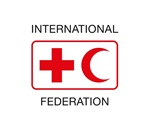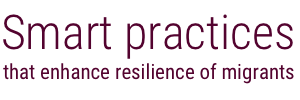Danish Red Cross offers all newly arrived refugees a “buddy” in their local community. A buddy provides the newly arrived refugee with practical guidance in, opens doors to local networking, and cultural and lingual interpretation easing the way for the new citizens into Danish society and local community
Danish Red Cross offers all newly arrived refugees a “buddy” in their local community. A buddy provides the newly arrived refugee with practical guidance in, opens doors to local networking, and cultural and lingual interpretation easing the way for the new citizens into Danish society and local community.
Buddies are trained by local Red Cross volunteer coordinators within their community. The coordinators support, supervise and recruit buddies within the community and they themselves are supported and trained by professional staff from the Danish Red Cross Headquarters.
The Danish Red Cross are also organizing local community meetings where representatives from municipalities, civil society organizations and the general public are invited by a Red Cross branch to engage in dialogue on how to coordinate and pool resources.
Operating in over 90 local branches (out of 208 local branches in total) across the country, the Danish Red Cross have an extensive knowledge on what is working, where the challenges are and how these are met and overcome. Case studies and follow-up interviews are being held extensively, including interviews with the refugees themselves.
By the end of 2018, the aim is to offer every single newly arrived refugee a “buddy”. This is possible through systematic sharing of information between municipalities and civil society, and hereby it is ensured that refugees are offered a volunteer buddy shortly after they arrive in their new local host community.
Design: P1 – focusing on the needs and vulnerabilities of migrants, their wider needs for emotional and social support, not just physical needs.
Implementation: P3 – supporting the aspirations of migrants to be integrated into the community & country where they are residing.
The general local and national perspective on refugees.
Mobilizing enough local volunteers.
Coordinating and pooling resources in a useful and meaningful way.
Establishing a platform for empowerment of the refugees themselves.
Integration is more likely to succeed if refugees establish a network shortly after their arrival into their host communities.
Refugees who are in frequent contact with locals generally feel more welcome in their communities, gain a better understanding of society and are generally more motivated to participate in society.
8 out of 10 municipalities estimate in a national Danish survey that they cooperate more with civil society on integration than they did a year ago.
86 percent estimate that civil society has a positive impact on the reception and integration of refugees.
Smart practices
Smart practices report and database survey
About the report
People migrate in pursuit of a better life for themselves and their families. As described in the International Federation of Red Cross and Red Crescent Societies’ (IFRC) Policy on Migration, “migrants are persons who leave or flee their habitual residence to go to new places – usually abroad – to seek opportunities or safer and better prospects.
Read more
About the International Federation

